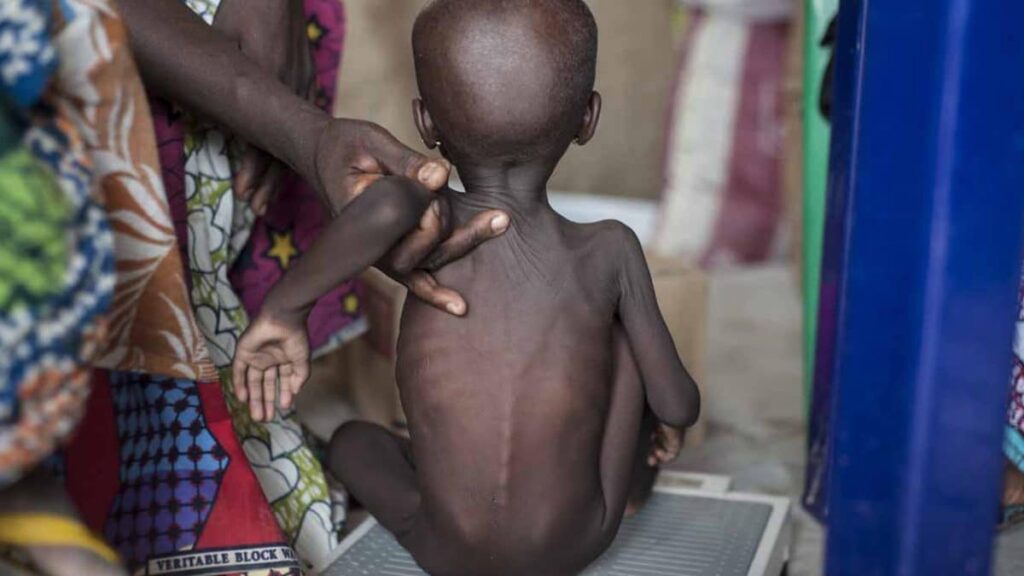The Nigerian government has officially acknowledged a critical malnutrition crisis affecting the country’s Northeast and Northwest regions. According to Mrs. Ladidi Bako-Aiyebusi, Director of the Nutrition Department at the Federal Ministry of Health and Social Welfare, over 4 million children are suffering from malnutrition in these areas.
This revelation was made during a five-day strategic meeting held in Keffi, Nasarawa State. The meeting, which started on Tuesday and will conclude on Saturday, is organized in collaboration with Civil Society-Scaling Up Nutrition in Nigeria (CS-SUNN) and various nutrition partners. It brings together nutrition experts, academia, Civil Society Organizations (CSOs), and other stakeholders to discuss and formulate a strategic advocacy policy for nutrition in Nigeria.
Bako-Aiyebusi’s remarks emphasized the gravity of the situation. She explained that Nigeria is currently experiencing a “triple burden of malnutrition,” which includes:
- Macronutrient and Micronutrient Deficiencies: A lack of essential nutrients that are crucial for growth and development.
- Undernutrition: Insufficient intake of calories and nutrients leading to poor health and stunted growth.
- Overnutrition: Excessive intake of certain nutrients, leading to obesity and related health issues.
The 2021 National Food Consumption and Micronutrient Survey further revealed that nearly 4.4 million children in the Northeast and Northwest regions are malnourished. The primary causes of this crisis are multifaceted and include:
- Inadequate Access to Food: Many families lack sufficient access to nutritious food due to economic constraints and poor infrastructure.
- Poor Dietary Practices: Inappropriate feeding and caring practices contribute to nutritional deficiencies.
- Economic and Political Structures: Economic instability and political factors exacerbate the food insecurity situation.
- Low Economic Status: Many families struggle with low incomes, making it difficult to afford nutritious food.
- Inadequate Health-Seeking Behaviors: Limited access to healthcare and insufficient health education further complicate the issue.
- Low Levels of Education: A lack of education about nutrition and health impacts the ability of families to make informed dietary choices.
The ongoing meeting aims to address these issues by providing policy directions and advocating for comprehensive nutrition strategies to improve the health and well-being of affected children. The discussions will focus on creating actionable plans to enhance food security, improve nutritional practices, and support families in need.







